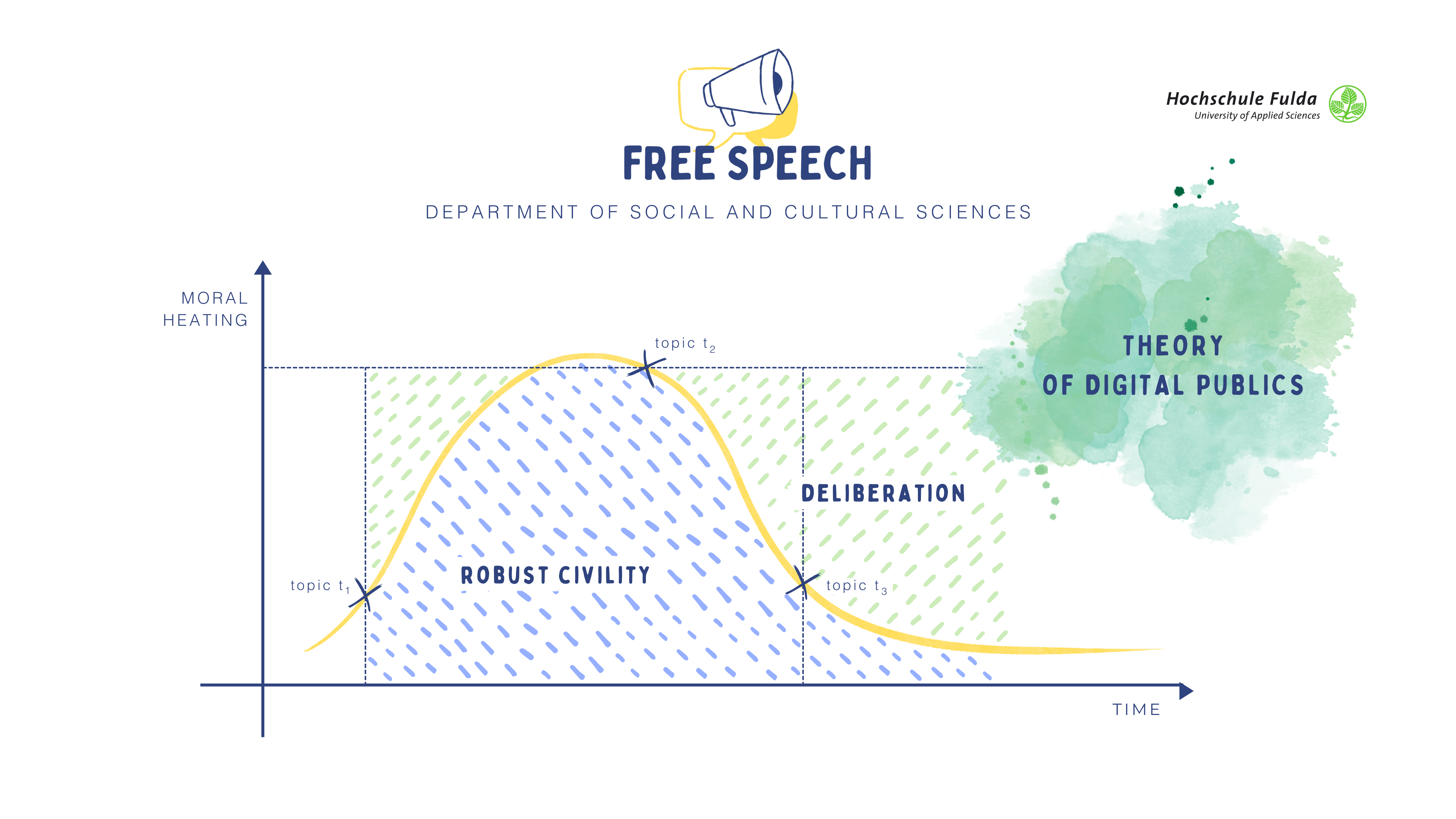From the beginning, what is a whistleblower?
Transparency International. Whistleblowing
A whistleblower is a person who finds information about individuals or organizations involved in corrupt affairs or who are believed to be able to commit acts to the detriment of the public or specific organizations/persons. According to „Transparency International“, an organization that is fighting for the protection of „whistleblowers“, one of the most effective ways to bring the above individuals to justice is through the denunciation to the relevant bodies. This is one of the most constructive ways to prevent corruption or different forms of crime. the role played by a whistleblower is best seen in the results it brings in everyday life.
These results start from various scandals to complicated schemes of money laundering, avoidance of obligations, massive thefts, injustices of various forms, etc. Although a person who chooses to be a signifier or the circumstances force him to be such, he can bring a very positive impact on society, or the other side of the medallion are the risks that these people can be involved in. Many of them, not to say all of them, are before the election if they have to report what they know and take into account the threats, the attacks, the work, the family, the social circle, their life in general, which may not be the same, or choose to remain silent in order to protect what they have, „one with the herd“.
„Transparency International“ lists 3 reasons why people won’t report injustice:
- fear of the consequences (legal, financial, reputational)
- the belief that nothing will be done, that it will not make any difference
- uncertainty about how, where and to whom to report.”
Another point that is considered important when we mention whistleblowers is how a person who reports on a given situation and shares information regardless of the content of this information or the circumstances of this situation can be considered. (whatever it may be) it is truly considered a dilemma that cannot be „divided with a knife“, if they take the side of the hero or the villain in history. This is because they are often put in the place of a traitor, a spy, from different countries or societies. This remains to be discussed with more concrete cases that will be dealt with below.
Whistle Blower Julian Assange: „Opening the curtains“,unveiling what stands behind suits and diplomatic meetings…
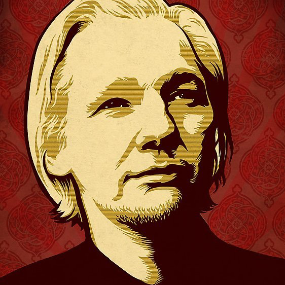
Julian Assange, a computer programmer, the creator of Wikileaks, an international non-profit organization for whistleblowers, a name that for many years occupied the front page of the news and informative editorial. Assange’s name received international recognition in 2010, when. his organization published classified information related to the interventions carried out by the US military in Afghanistan and Iraq. The information Assange had obtained from a former intelligence analyst of the US army, Chelsea Mannig, who under the Espionage Act of 1917, was sentenced to 35 years in prison. The classified information that went around the world on the web was a video that showed footage of how an American army helicopter had shot and killed Iraqi people and Reuters journalists. Less than a month later, Wikileaks and other media presented to the public about 90,000 documents that provided details on the US occupation of Iraq, the deaths of civilians, al-Qaeda, the Taliban and Afghan leaders, etc.
Al Jazeera. (2010) Julian Assange: What you need to know about the WikiLeaks founder.
Julian Assange WikiLeaks Cables
In a significant development, a collection of around 250,000 confidential diplomatic cables from the United States, offers a bizarre glimpse into the behind-the-scenes negotiations conducted by embassies worldwide. These cables contain assessments of foreign leaders, discussions on nuclear and terrorist threats, and insights into the Obama administration’s responses to global crises.
Shane, Scott; W. Lehren, Andrew.(2010)Leaked Cables Offer Raw Look at U.S Diplomacy. The New York Times.
A selection of these cables, has been shared with The New York Times and other news outlets. This information was initially obtained by WikiLeaks at that time, as an organization whose work primary was disclosing confidential documents. WikiLeaks released 220 cables, with certain sections redacted to safeguard diplomatic sources on its website.
The release of these cables has sent shockwaves throughout the diplomatic community, potentially straining relations with certain countries and introducing unpredictable changes to international affairs. Secretary of State of the time Hillary Clinton and American ambassadors had been in contact with foreign officials to prepare them for the disclosures while the White House issued a statement strongly condemning the unauthorized release of classified documents and sensitive national security information.
According to the White House, the distribution of these „stolen cables“ to multiple media outlets constitutes a „reckless and dangerous action.“ It is warned that certain cables, if published in their entirety, could disrupt U.S. operations abroad and jeopardize the safety and identities of confidential sources used by American diplomats. The statement emphasizes that these reports often contain „candid and sometimes incomplete information,“ the exposure of which could have significant repercussions for U.S. foreign policy and the interests of its allies worldwide.
These cables represent a substantial sample of daily communication between the State Department and approximately 270 embassies and consulates. They provide a confidential record of the United States‘ interactions with the world during a period marked by conflict and terrorism. In the following days,
The Times Description of Revelations Wikileaks cables, including:
- A tense standoff with Pakistan over nuclear fuel: Since 2007, the U.S. has been engaged in a covert operation to extract highly enriched uranium from a Pakistani research reactor, which American officials fear could be diverted for illicit nuclear purposes. Ambassador Anne W. Patterson reported in May 2009 that Pakistan was refusing to schedule a visit by American technical experts due to concerns that local media would portray it as the U.S. seizing Pakistan’s nuclear weapons.
- Contemplating the collapse of North Korea: American and South Korean officials have explored the possibility of a unified Korea in the event of North Korea’s economic and political instability. South Korea even considered offering economic incentives to China to address its concerns about a reunified Korea aligned with the United States.
- Negotiations to empty the Guantánamo Bay prison: U.S. diplomats engaged in talks with other nations to find new homes for detainees. Some countries were given specific conditions, such as Slovenia being told it could meet with President Obama if it accepted a detainee. Kiribati was offered substantial incentives to take in Chinese Muslim detainees. Additionally, the U.S. suggested that Belgium could enhance its prominence in Europe by accepting more prisoners.
- Suspicions of corruption in the Afghan government: During a visit to the United Arab Emirates, one of Afghanistan’s vice presidents was found to be carrying $52 million in cash. Local authorities, in collaboration with the Drug Enforcement Administration, discovered this significant sum of money. A cable from the American Embassy in Kabul reported the incident, describing it as „a significant amount.“ However, the Afghan official, Ahmed Zia Massoud, denied taking any money out of Afghanistan.“
Here’s the New York Times Description of the “stolen cables scandal”.
Saudi donors continue to be the primary financiers of Sunni militant groups, including Al Qaeda. Additionally, Qatar, a long-standing host to the American military, has been criticized for its counterterrorism efforts, particularly for hesitating to act against known terrorists out of fear of appearing aligned with the U.S.
American diplomats in Rome reported in 2009 on an unusually close relationship between Russia’s Prime Minister Vladimir V. Putin and Italy’s Prime Minister and business magnate Silvio Berlusconi. This relationship involved lavish gifts, fruitful energy contracts, and the presence of a mysterious Russian-speaking Italian intermediary. This report suggested that Berlusconi was becoming a mouthpiece for Putin in Europe. It also highlighted the challenge of Putin’s leadership in Russia, where despite his supremacy, an unruly bureaucracy often disregarded his orders.
Cables describe the U.S.’s struggle to prevent Syria from supplying arms to Hezbollah in Lebanon. Despite assurances from Syrian President Bashar al-Assad that no new arms would be sent to Hezbollah, the U.S. received information indicating the contrary.
Regarding the rift with Europe over Human Rights 2007, American officials cautioned Germany against enforcing arrest warrants for CIA officers involved in an operation that mistakenly detained an innocent German citizen with the same name as a suspected militant. They emphasized that their intention was not to threaten Germany but to urge careful consideration of the implications for U.S.-Germany relations at every step.
The source of these 251,287 cables was WikiLeaks, and they were provided to The New York Times anonymously. While most of these cables are unclassified, none are labeled „top secret.“ However, about 11,000 are classified as „secret,“ 9,000 as „noforn“ (not to be shared with foreign governments), and 4,000 are both „secret“ and „noforn.“
These cables underscore that, nearly a decade after 9/11, the fight against terrorism continues to shape U.S. global relations. They reveal efforts to determine trustworthy Pakistani partners in the fight against Al Qaeda, add missing Australians in the Middle East to terrorism watch lists, and assess potential surveillance in Lahore, Pakistan.
The cables also document the challenges posed by China’s ascent and Russia’s retreat from democracy. They detail the ongoing efforts to prevent Iran from acquiring nuclear weapons and concerns about the possibility of an Israeli strike on Iran.
Even if some of these events were previously known, the cables provide intricate details. For instance, they recount the Yemeni government’s attempts to conceal the American role in missile strikes against Al Qaeda. The cables also capture often humorous moments in diplomatic history, such as Libya’s Colonel Qaddafi’s tantrum over not being allowed to set up his tent in Manhattan.
Moreover, the cables unveil private remarks behind closed doors. King Abdullah of Saudi Arabia, for example, speaks about the leaders of Iraq and Pakistan. These cables are a unique glimpse into the complex and multifaceted world of international diplomacy, offering insights that were typically only accessible to historians after decades had passed.
Nonetheless, the authentic reality series in these cables comes from the narratives of diplomatic encounters with foreign figures. They reveal the intricate manoeuvring and negotiations that occur in international diplomacy, often with both sides carefully guarding their intentions.
https://www.quora.com/Was-Julian-Assange-right-to-do-what-he-did-What-do-you-think, also here you can find people comments and opinions regarding the case of Assange, an insight of their support for him or not.
Espionage Act of 1917, two sides of a medallion.
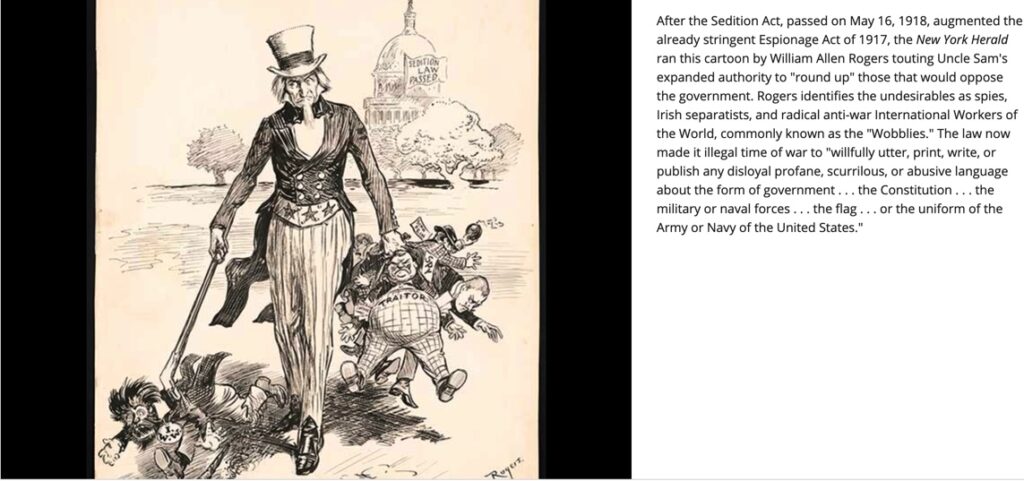
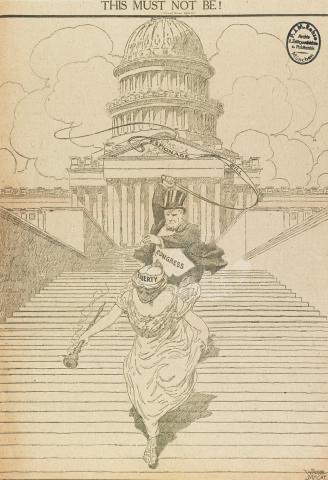
This editorial cartoon depicts a lady symbolizing „Liberty“ being pursued down the stairs of the U.S. Capitol by a man representing „Congress.“ The man wields a whip labeled „Espionage Bill.“ This illustration was released prior to the enactment of the Espionage Act of 1917. This law made it a crime to share information that could harm the U.S. military during the war or help its enemies.
- When German operatives began their activities within the United States, President William Howard Taft took action by enacting the Defense Secrets Act of 1911. This law criminalized not only the gathering of information from military facilities but also the sharing of sensitive data with individuals lacking the necessary security clearances. Subsequently, when the United States entered World War I in June 1917, Congress passed the Espionage Act, an expansion of the 1911 legislation with several significant additions.
The Espionage Act aimed to suppress activities during wartime that were considered disloyal to the nation. This included efforts to obtain defense-related information with the intent to harm the United States, as well as the acquisition of codebooks, signal books, blueprints, and similar documents for the purpose of passing them to America’s rivals, enemies. Moreover, the Act made it illegal to circulate false statements with the intention of disrupting military operations, inciting insubordination, obstructing troop recruitment, or promoting the success of America’s enemies. Those found guilty of such violations faced severe penalties, including fines of up to $10,000 and imprisonment for twenty years. During wartime, these penalties could escalate to thirty years in prison or even the death penalty.
Intelligence.gov. The Espionage Act of 1917.
Certain provisions of the Espionage Act, as well as the later amendment known as the Sedition Act of 1918, aimed to suppress any criticism of the government or the war effort. Additionally, these acts granted the Postmaster General the authority to intercept mail containing such critical expressions. These measures stirred controversy, as they appeared to infringe upon Americans‘ First Amendment rights, particularly their freedom of speech.
The more restrictive Sedition Act was eventually repealed in December 1920, although not before federal prosecutors had filed charges against over two thousand individuals for alleged violations. Importantly, the Espionage Act remains in effect today and has served as the basis for notable espionage convictions over the past century.
Notable Espionage Conviction Cases:
- Julius and Ethel Rosenberg: These individuals were convicted of espionage in 1951 after spying for the Soviets during World War II. They shared secrets related to the development of the atomic bomb and were executed in 1953, marking the only instance of American citizens being put to death for espionage.
- John Walker: Serving as a Navy Chief Warrant Officer, Walker sold U.S. cryptographic material to the Soviets for nearly two decades. His actions provided Soviet handlers with access to critical communications and sensitive information, potentially neutralizing U.S. naval forces in the event of war. He was convicted of espionage in 1985.
- Aldrich Ames: As a CIA officer, Ames spied for the Soviets and later the Russians over a span of nine years. His betrayal led to the deaths of nearly a dozen Soviet intelligence officers who had provided secrets to the United States. Ames was convicted of espionage in 1994.
- Robert Hanssen: This FBI special agent engaged in espionage for the Soviets and Russians for more than two decades. His actions resulted in the deaths of numerous Soviet agents who had spied for the United States. Hanssen was convicted of espionage in 2001.
In conclusion, the Espionage Act of 1917, enacted during World War I to safeguard national security, introduced restrictions on freedom of speech. While it aimed to protect the United States from wartime threats, its broad provisions made it possible to curtail free expression, leading to controversy. Although the more restrictive Sedition Act was eventually repealed, the Espionage Act persists today and has been employed in significant espionage cases, raising ongoing questions about the delicate balance between safeguarding national interests and preserving the fundamental right to freedom of speech. The Espionage Act represents a challenge in balancing the need for national security during wartime with the protection of fundamental rights like freedom of speech. It raises questions about how far a government can go in limiting speech to safeguard its interests.
– Let’s take a simple poll…


Besides the top two answers being: I would consider it while being discreet/ I would find another solution without facing danger (if possible), there was also someone who shared an opinion while choosing “other”:
Opinion X student – “My response is influenced by the above 3 factors. First of all, geographical space, where am I. I say this like, am I in a communist state, socialist state, what’s the political environment in this geographical space. I will first about this and then the extent of sensitivity of the issue, how sensitive is this issue, is it so important, life changing important. And then I would look at the people whose being affected, should I blow the whistle, who would be looking out for me, because as I said, if I am not in a very safe space… What do I mean by safe space because they are people in US who blew a source, and they need to run away to Russia. I would depend on these things. If the people who are being affected are some powerful governmental officials who can find me whenever I am and deal with me, I will be sure to protect myself first, I would always think of my head, am I saving myself by doing this? I would not go and speak if I end up losing my life… what’s the point.”
Basically, this simple poll shows us once more that it is not quite easy to be in the place of someone who holds in the hands such a powerful yet very tricky and dangerous asset as the truth. In the end it’s seems that we really face with a Shakespearian dilemma.
Whistleblowers Protection and Law
Taylor, Catherine. Freedom of the Whistleblowers. NLG Review.
Whistleblowers, as defined by Black’s Law Dictionary, are employees who report their employers‘ wrongdoing to government authorities. In the Whistleblower Protection Act of 1989, they are employees who reasonably believe government actions indicate a violation of laws, mismanagement, waste of funds, abuse of authority, or a danger to public health or safety. However, these protections don’t extend to employees disclosing information prohibited by law or kept secret for national defense.
Whistleblowers are usually government workers, and when they speak in an official capacity, their First Amendment rights aren’t the same as those of regular citizens. They have a position of trust with the government, especially if they have access to classified information. The Supreme Court has ruled that when they speak as part of their official duties, they’re not protected by the First Amendment.
This means that government employees with access to classified information can’t disclose it to the press without consequences. Courts have upheld this, emphasizing the high degree of trust such employees hold and the importance of maintaining secrecy in intelligence agencies. Even if whistleblowers believe they’re exposing wrongdoing, they may face legal action.
Current protections for whistleblowers are limited. The Whistleblower Protection Act doesn’t cover all government employees, and other regulations, like Presidential Policy Directive 19 and the Intelligence Community Whistleblower Protection Act, have limitations. Whistleblowers may still face retaliation within their agencies, making them hesitant to come forward.
In summary, whistleblowers face legal risks when disclosing classified information, even if they believe they’re exposing wrongdoing. Existing protections are insufficient, and courts have not strongly defended their First Amendment rights, citing the trust they hold as government employees. This leaves whistleblowers in a precarious position when trying to report government misconduct.
– What can we conclude?

As in the role of diplomat once Sergei Lavrov said: “I don’t believe in ideology in international relations”, indeed what we see, read, hear in everyday life media coverage compared of what actually happens in the “behind the scenes” of diplomatic relations between states, is truly a masterpiece of sugar-coated hidden truths, closed doors, ultimatums of those in power to obtain and seize in their hands everything that best suits, works for them. This is something that us as the public are used to, considering the once in some decades truths that shows unnoticed and makes us realise once more that this is how the balance of world works, what is behind the curtains will be kept away from the public eye and if that Is considered good or not for the freedom of speech, expression or where to draw the line for the people to know, where to draw the line of “confidential, not to show to the public”, is a controversial discussion and undeniably a heated one.
BrainyQuotes. Sergei Lavrov
– Something extra…
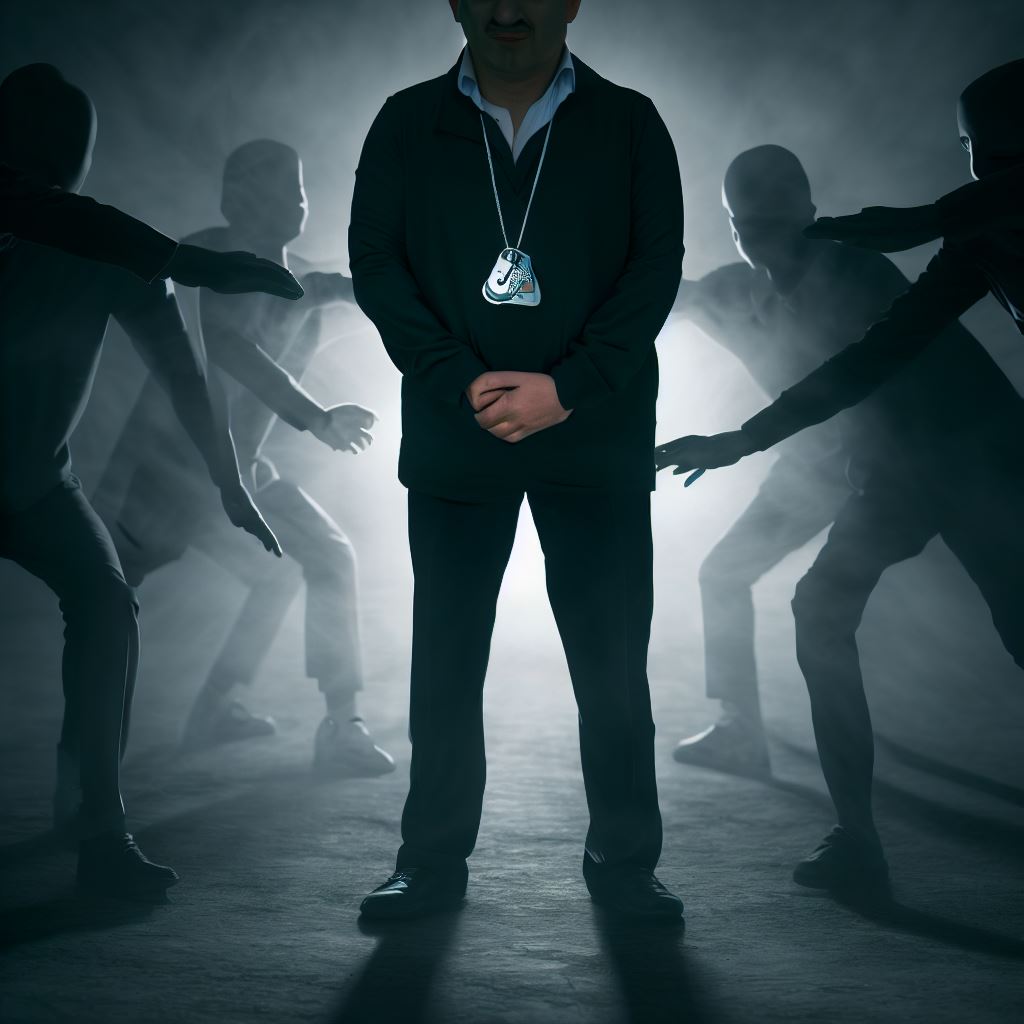
– The above picture as well as the two others one in the same format, are a depiction of my own imagination using AI tools, showing how I personally have created the image of a whistleblower in my head. Specially this one show hidden representation of person holding around his neck the “whistle” or “the truth/discovery”. The darkness represents the world in general regarding to these people, the behind shadows are “the powerful” who try to capture what this whistleblower holds. The light behind is the true power that “doing the right thing” holds, not forgetting the risk and danger.
– Bibliography:
- Al Jazeera. (2010) Julian Assange: What you need to know about the WikiLeaks founder. https://www.aljazeera.com/news/2020/12/20/julian-assange
- BrainyQuotes. Sergei Lavrov. https://www.brainyquote.com/quotes/sergei_lavrov_721168?src=t_international_relations
- Intelligence.gov. The Espionage Act of 1917. https://www.intelligence.gov/evolution-of-espionage/world-war-1/america-declares-war/espionage-act#:~:text=The%20Espionage%20Act%20broadly%20sought,with%20the%20intention%20of%20passing
- Taylor, Catherine. Freedom of the Whistleblowers. NLG Review. https://www.nlg.org/nlg-review/article/freedom-of-the-whistleblowers-why-prosecuting-government-leakers-under-the-espionage-act-raises-first-amendment-concerns/
- Transparency International. Whistleblowing. https://www.transparency.org/en/our-priorities/whistleblowing#:~:text=A%20whistleblower%20discloses%20information%20about,relevant%20authorities%2C%20or%20the%20public.
- Quora. Questions related Julian Assange. https://www.quora.com/Was-Julian-Assange-right-to-do-what-he-did-What-do-you-think
- Shane, Scott; W. Lehren, Andrew.(2010)Leaked Cables Offer Raw Look at U.S Diplomacy. The New York Times. https://www.nytimes.com/2010/11/29/world/29cables.html
